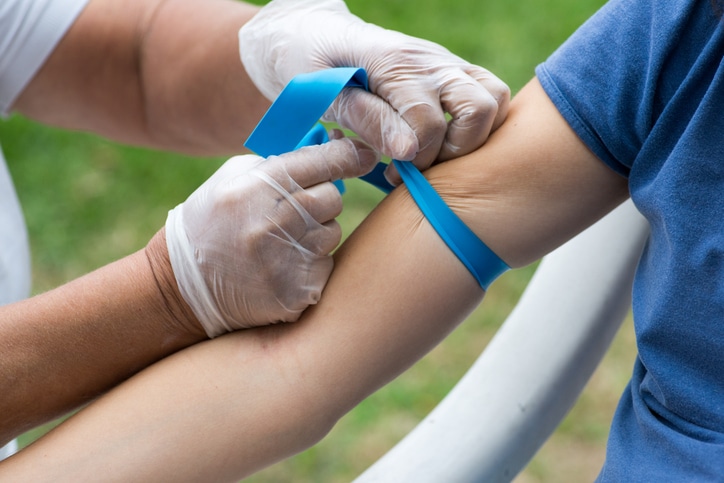On October 22, the U.S. Department of Justice (DOJ) announced that Veni-Express Inc., a mobile phlebotomy lab, and its owners, Myrna and Sonny Steinbaum, agreed to pay at least $135,000 to resolve False Claims Act allegations. The settlement stems from two qui tam suits filed under the False Claims Act by whistleblowers.
The DOJ alleges that Veni-Express and the Steinbaums “submitted false claims for mobile phlebotomy services and associated travel mileage and paid kickbacks to a third-party marketer of these services, in violation of the Anti-Kickback Statute (AKS).”
According to the DOJ, “with the Steinbaum’s oversight and approval, Veni-Express submitted false claims for venipuncture (blood draw) procedures that the company did not actually perform during homebound patient visits, and for travel mileage associated with these visits that was not reimbursable by Medicare.”
The DOJ further alleges that Veni-Express paid kickbacks to Altera Laboratories in exchange for the marketing of Veni-Express’ services.
“Health care providers that bill for services they did not provide or offer illegal incentives to increase profits will be held accountable,” said Principal Deputy Assistant Attorney General Brian M. Boynton, head of the Justice Department’s Civil Division. “We will continue to safeguard federal health care programs against those who seek to abuse them.”
“Providers must not bill for services they did not perform. Further, the presence of unlawful kickbacks all too often corrupts medical judgment,” said U.S. Attorney Phillip A. Talbert for the Eastern District of California. “Our office is committed to investigating and holding accountable those who violate the False Claims Act and AKS to safeguard the public fisc and protect the integrity of our federal health care system.”
The qui tam whistleblower suits which led to the settlement were by Banisha Evans, a former phlebotomist for another California provider, and Richard Drummond, a technical director at a Texas laboratory.
Under the False Claims Act’s qui tam provisions, individuals may file lawsuits alleging government contracting fraud on behalf of the United States. In successful qui tam cases, whistleblowers are eligible to receive between 15 and 30% of the settlement.
In this case, the whistleblowers’ share of the settlement have not yet been determined.
In July 2023, a bipartisan group of senators introduced the False Claims Amendments Act of 2023, which address a few technical loopholes undermining the success of the FCA. The bill is widely supported by whistleblower advocates.
National Whistleblower Center (NWC) has issued an Action Alert calling on Congress to pass the bill.
Join NWC in Taking Action:
Demand that Congress strengthen the False Claims Act
Further Reading:
Qui Tam Whistleblower Suits Against Mobile Phlebotomy Lab Lead to $135,000 Settlement
Bipartisan Legislation Unveiled to Strengthen False Claims Act
